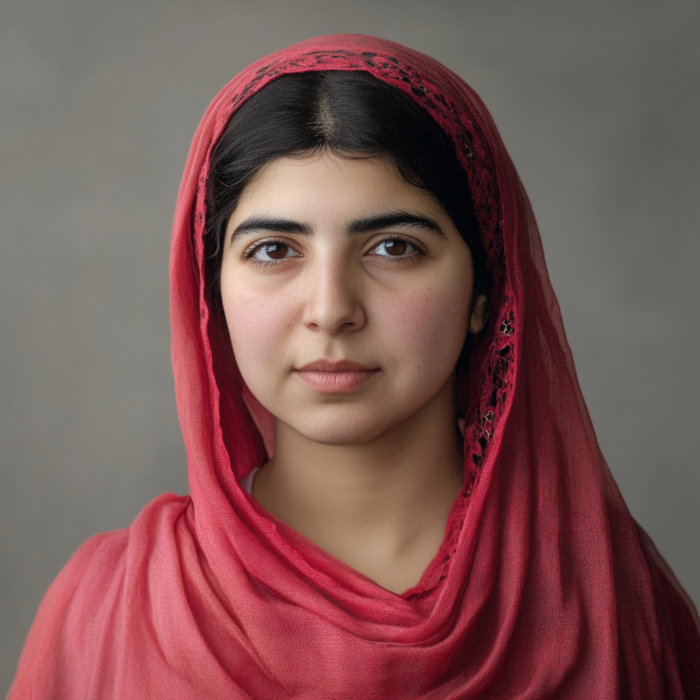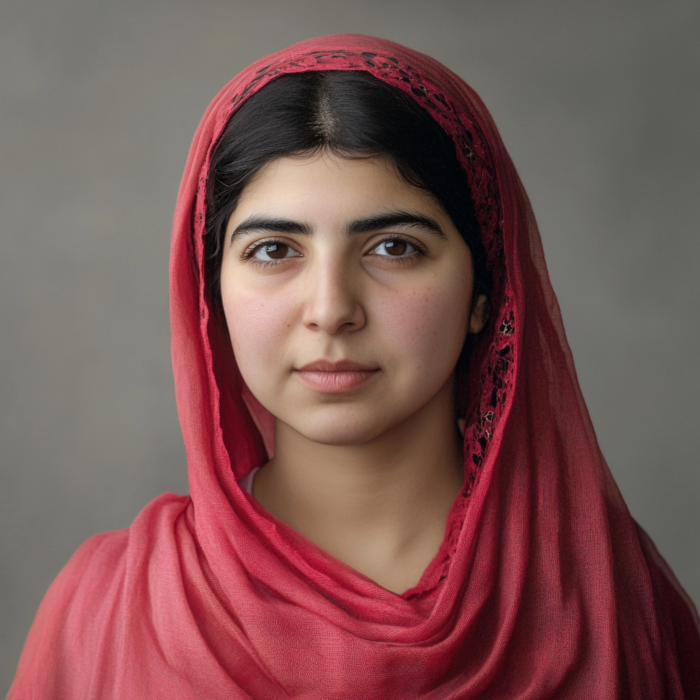


Malala Yousafzai (born July 12, 1997) is a Pakistani activist for girls' education and the youngest-ever Nobel Prize laureate. She gained international recognition for her courageous advocacy of girls' rights to education in the face of violent opposition from the Taliban in her native Pakistan. Malala's activism, resilience, and unwavering commitment to education have made her a global symbol of the fight for female empowerment and education equality.
Malala grew up in a region that, while beautiful, was fraught with instability due to the rise of the Taliban, who opposed education for girls and imposed strict interpretations of Islamic law. Despite these challenges, Malala was encouraged by her father to pursue her education and to speak out for her rights.
Early Activism: Malala's activism began at a young age. In 2009, when she was just 11 years old, she started writing a blog under a pseudonym for the BBC Urdu, detailing her life under Taliban rule and her thoughts on the importance of education. Her writings brought attention to the plight of girls in Swat and highlighted the oppressive measures the Taliban were taking to shut down girls' schools.
Increased Visibility: As her blog gained popularity, Malala became more outspoken in public, advocating for girls' education and criticizing the Taliban's actions. She was featured in a New York Times documentary, which brought her further international attention.
Assassination Attempt: On October 9, 2012, Malala was shot in the head by a Taliban gunman while riding a bus home from school. The attack was a targeted assassination attempt in retaliation for her activism. The bullet entered her head, traveled down her neck, and lodged in her shoulder, critically injuring her. Two other girls were also injured in the attack.
Medical Treatment and Recovery: Malala was initially treated in Pakistan but was later transferred to the United Kingdom for further treatment at Queen Elizabeth Hospital in Birmingham. She underwent multiple surgeries and rehabilitation and eventually made a remarkable recovery. The assassination attempt sparked an outpouring of support for Malala worldwide and further galvanized the global movement for girls' education.
Malala Fund: After her recovery, Malala continued her activism on an even larger scale. In 2013, she and her father co-founded the Malala Fund, an organization dedicated to advocating for girls' education around the world. The Fund supports education projects in various countries and works to empower girls to achieve their potential and become leaders in their communities.
Speeches and Advocacy: Malala has since spoken at numerous international forums, including the United Nations, where she delivered a powerful speech on her 16th birthday, emphasizing the importance of education for all children. Her speech received widespread acclaim and further established her as a leading voice in the global movement for education.
Nobel Peace Prize: In 2014, Malala was awarded the Nobel Peace Prize at the age of 17, making her the youngest person ever to receive the honor. She shared the prize with Kailash Satyarthi, an Indian children's rights activist, in recognition of their struggle against the suppression of children and young people and for the right of all children to education.
Education: Despite her global activism, Malala has remained committed to her own education. After moving to the UK, she attended Edgbaston High School in Birmingham. In 2017, she began her studies at the University of Oxford, where she pursued a degree in Philosophy, Politics, and Economics (PPE), graduating in 2020.
Personal Life: Malala’s personal life has been deeply intertwined with her activism. She continues to live in the UK with her family, who remain involved in her advocacy work. Despite the ongoing threats against her life, she remains steadfast in her commitment to education and equality.
Books: Malala has authored several books, including her memoir I Am Malala: The Girl Who Stood Up for Education and Was Shot by the Taliban (2013), which became an international bestseller. The book provides an intimate account of her life, the challenges she faced, and her journey to becoming a global advocate for education.
Documentary: In 2015, a documentary film titled He Named Me Malala was released, chronicling her life and activism. The film further highlighted her story and the broader struggle for girls' education.
Global Influence: Malala Yousafzai’s influence extends far beyond her own story. She has become a global symbol of the fight against oppression and for the right of every child, particularly girls, to receive an education. Her work has inspired countless people around the world and has contributed to significant progress in global education initiatives.
Awards and Honors: In addition to the Nobel Peace Prize, Malala has received numerous awards and honors, including honorary Canadian citizenship, the Sakharov Prize, and inclusion in Time magazine’s list of the 100 most influential people in the world on multiple occasions.
Malala continues to be a powerful advocate for education, women's rights, and social justice. Through the Malala Fund, she remains active in promoting educational opportunities for girls in underserved regions, particularly in countries affected by conflict. Her work focuses not just on providing access to education but also on changing social norms and policies that prevent girls from attending school.
Malala Yousafzai’s courage, resilience, and commitment to education have made her one of the most respected and admired figures in the world today. Her story is a testament to the power of one person to make a difference, even in the face of overwhelming adversity.

We use cookies
We use cookies and other tracking technologies to improve your browsing experience on our website, to show you personalized content and targeted ads, to analyze our website traffic, and to understand where our visitors are coming from. Privacy Policy.